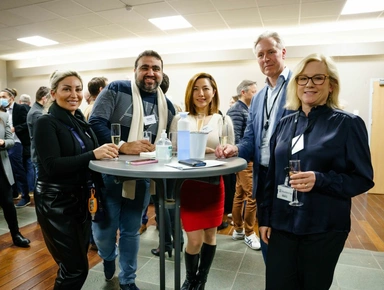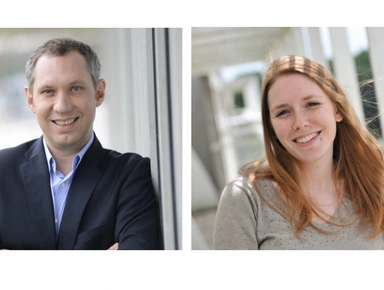Every year, consulting firms generate an estimated €8 billion in revenue in France. The industry is dominated by the big three also known as MBB (McKinsey, Bain, and BCG). Being a consultant gives access to a mine of data and information that becomes the base of recommendations provided to clients. After numerous years of unchanged methods and practices, consulting firms are now facing digital transformation which is pushing them to adapt fast and stay ahead of their game. With these changes comes new legislation which is shaping the business environment and having an important impact. Consultants must comply with the new rules of the game and at the same time make sure they secure constant growth. For this article, we sat down with Lisa Thomas an Audencia strategy professor, to ask her about the consulting industry and for her thoughts on ethical dilemmas faced in this industry.
Deep changes on the horizon, a new approach
Nowadays, the consulting business has expanded to new dimensions; it is an expanding business with several niches, as organizations and individuals are turning to different consulting services seeking effectiveness and adaptation to the changing business environments.
The most significant change in consulting seems to be the great access to and availability of information. This is associated with the large amount of data generated through the use of new technologies and new ways of doing business and new tools & techniques; that is, the greater the complexity within societies and businesses, the greater the amount of information, which requires a great deal of understanding and knowledge of appropriate ethical practices in the filtering, handling, analyzing, and using data as an input & tool for every project.
Another very important factor to consider is that consulting, unlike many other professions, has no industry wide regulatory body, and while the proposal of establishing a regulatory organism for the consulting industry is genuine, it is unclear who would be in charge of developing this and under what standards and metrics the industry would be governed. Professor Thomas mentions that consulting firms must have a strong, well-developed code of practice that regulates them internally. However, given business, consultants are facing disruptive and innovative situations, there is more of a requirement for strong ethical conduct and this should be at the forefront of the company’s code of practice. Internal codes of practice should provide a wide emphasis extended among workers, stakeholders and clients. This has the potential to generate greater commitment to responsibility and accountability on behalf of consultants.
One of the most common practices that can negatively impact the consulting industry is the practice of blaming the client’s poor implementation of a project once the consultant has finished their work. It is very easy to propose different improvements, tools, or changes and then disassociate oneself from the client’s implementation phase. It is therefore pertinent to reinforce and give value to more holistic and interactive ways of working with the client and internally, to monitor the progress of the project and detect possible areas for improvements.
In some sense the best way to improve as a consulting firm, is to develop and provide structures that allow dialogue, error recognition and learning from failure, which some companies sometimes do not value.
"Accepting failure, and learning from what doesn't work, being quite open about it, the thing is everybody wants to develop so quickly within A CONSULTANCY firm that admitting failure is detrimental".
It is common that some consultants do not share all the information thus extending projects or charging additional consultancy services. However, a statement of the objectives, a company's code of ethics and strong values must be the guarantor of the interests of both the consulting firm and its clients. Consulting firms are frequently confronted with the decision of delivering fast and effective solutions or holding back information thus prolonging their contract. This is something that is common and also seems to be the new normal. Significant consequences may follow, and these can impede progress and innovation and more importantly, can delay the good results a client company was expecting.
Alternatively, a consultant may get too close to a client such that they do everything the client dictates. The client might have pre-conceived ideas that the consultant thinks might not be right. However, owing to their proximity with the client, objectivity is lost. This can be seen in the role played by McKinsey in the Opioid crisis. The consulting firm went along entirely with the strategy of pharmaceutical companies rather than questioning the consequences such strategies might have.
The increasing power of consulting firms and its implication
Consulting firms are having an increasing influence on governments and public institutions. We have seen lately prominent politicians becoming advisors, working with private corporations and even foreign governments. According to Lisa Thomas this is quite predictable and inevitable given the fact that consulting firms try to increase their bargain power through capitalizing networks and know-how from former politicians or people in leading positions. We have seen cases like François Fillon, the disgraced presidential candidate who has been working on several different company boards - some of which were in Russia - or even Dominique Strauss-Khan who became the go-to person for governments wanting to secure a loan from the IMF. This is quite common around the globe because Consulting firms use their knowledge and networks from their home country for clients who are thinking of expanding their businesses in the area of expertise of these personalities.
The line is fine between what is considered legal and what is not. In this situation, those practices need to be policed in order to avoid any violation of the law. The stakes are quite high considering the global political climate, war, and different geopolitical conflicts. Industrial espionage is less common, but we have seen a concerning increase in cyber-attacks with devastating consequences. As a consultant, having ties with organizations or Governments involved in such unethical practices could be considered as the point of no return and boundaries must be established.
Strong values and a sense of dignity and responsibility
The new generation of consultants are quite different from their counterparts of the past. There is a movement towards greater social awareness and transparency. When we posed the question concerning what we should do as a consultant in the face of a `delicate` situation to Professor Thomas, replied with a simple answer: “Keep true to yourselves, keep your own values intact and don’t be drawn to being manipulated”. The consulting industry is facing high growth and is in constant need of consultants. They cannot afford to lose an employee which means that they will always think twice before firing one of their employees on the ground of refusal to comply to an unethical practice. The high turnover rates in the field impel managers to reflect on the needs of their employees and how to comply with their values. A consulting firm that chooses to ignore those signs is condemned to failure; change is the only viable way to sustain growth and reach objectives.
Article by CASTANEDA Miguel, RWAMIYE Jean Pavel









